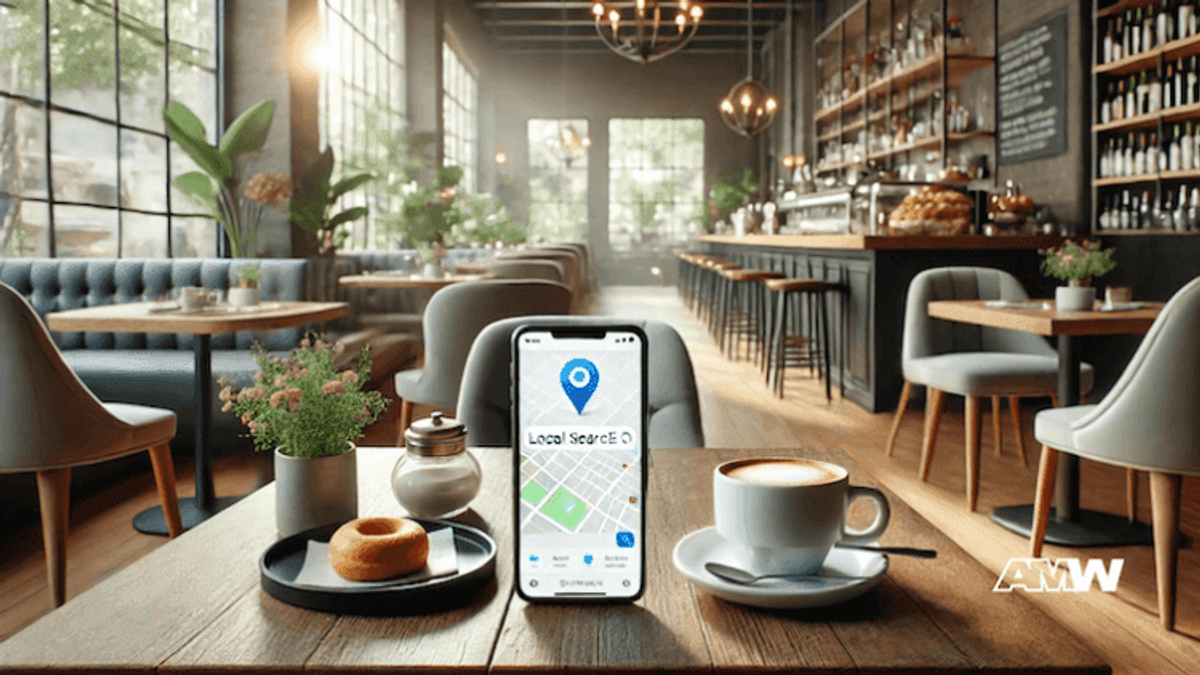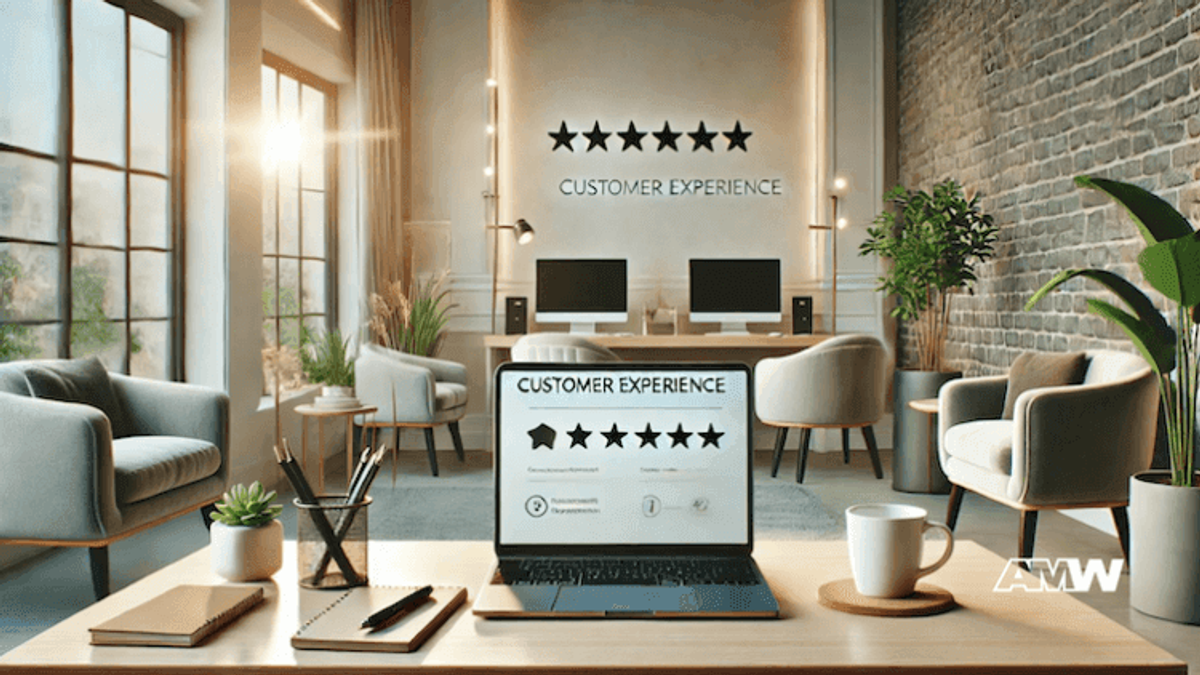The Pros of Digital Marketing

Digital marketing offers many benefits that can significantly enhance a company's growth and profitability. From cost efficiency to global reach, these advantages make digital marketing an indispensable tool.
Quick Summary
The article emphasizes the transformative benefits of digital marketing, highlighting its cost efficiency and targeted advertising that allow businesses to reach their ideal customers effectively. It discusses how digital marketing fosters enhanced customer engagement and provides measurable results through analytics, enabling informed decision-making. With a capacity for global reach and improved customer retention, it facilitates personalized experiences and faster real-time interactions, maki
Below, we delve into the key pros of digital marketing, each offering unique value to organizations looking to thrive in a competitive marketplace.
Cost Efficiency

One of the best advantages of digital marketing is its cost efficiency. Traditional marketing methods, such as print ads, television commercials, and billboards, often require substantial financial investments. Social advertising, email- and content marketing can be implemented at a fraction of the cost. Businesses can use digital marketing because it's affordable.
This helps them use their marketing money more effectively. Digital marketing platforms also provide detailed analytics and insights so businesses can improve their campaigns in real-time and save money.
Targeted Advertising
Digital marketing lets businesses reach their ideal customers with precision through targeted advertising. Unlike traditional marketing, digital platforms offer advanced targeting options based on demographics, interests, behavior, and more.
Platforms like Facebook and Instagram allow highly tailored ads to reach users based on their online activities and preferences, maximizing effectiveness and minimizing waste.
Measurable Results
Another benefit of digital marketing is measuring results with a high degree of accuracy. Traditional marketing efforts often struggle with quantifying success and ROI. In contrast, digital marketing tools provide detailed metrics and analytics that track the performance of campaigns in real time. KPIs such as click-through rates (CTR), conversion rates, and customer engagement can be easily monitored.
This data-driven method allows businesses to assess the effectiveness of their strategies, make informed decisions, and adjust their tactics as needed to improve outcomes. The ability to measure results accurately ensures that marketing investments are justified and aligned with business goals.
Enhanced Customer Engagement

Digital marketing fosters enhanced customer engagement by leveraging various online channels to interact with the target audience. Social media gives the opportunity to engage with clients directly through comments, messages, and posts.
This two-way communication builds stronger relationships and increases brand loyalty. Additionally, content marketing strategies, such as blogs, videos, and infographics, offer valuable information that resonates with customers, encouraging them to interact and share content.
Email marketing plays an important role in maintaining ongoing communication with customers and delivering personalized messages that keep them engaged with the brand.
Global Reach

One of the most transformative benefits of digital marketing is its ability to extend a business's reach on a global scale; unlike traditional marketing methods that are often limited by geographical constraints, digital marketing breaks down barriers and allows businesses to connect with potential customers worldwide.
Through search SEO, social media, and online advertising, companies can attract and engage with audiences beyond their local markets. This opens up opportunities for growth, expands market share, and increases brand visibility. Small businesses, in particular, can compete with larger corporations by leveraging the expansive reach of digital marketing to tap into international markets.
Personalization
Personalization is a powerful aspect of digital marketing that can improve customer experiences. Digital marketing tools help businesses analyze customer data to create personalized marketing messages and offers. Personalized marketing doesn't just increase message relevance but also fosters stronger customer connections, leading to greater engagement and loyalty.
Real-Time Interaction

Digital marketing enables real-time interaction with customers, providing immediate responses to their inquiries and feedback. Social media platforms, live chat support, and interactive website features facilitate instant communication between businesses and their customers. This immediacy enhances the customer experience, as issues can be resolved quickly and efficiently.
Real-time interaction also allows businesses to capitalize on trending topics and current events, creating timely and relevant content that resonates with their audience. Interacting with customers gives a sense of community and trust, strengthening the brand-customer relationship.
Flexibility and Adaptability
Digital marketing offers the flexibility and adaptability needed to keep up with these changes. Unlike traditional marketing, which often requires long lead times and fixed schedules, digital marketing campaigns can be adjusted fast in response to market trends and consumer behavior. Businesses can experiment with different strategies and pivot as needed to achieve optimal results.
This agility is particularly beneficial in a fast-paced market, allowing businesses to stay ahead and continuously refine their marketing efforts to better meet the needs of their audience.
Data-Driven Decision Making
Digital marketing provides a wealth of valuable data, giving insights into customer behavior, campaign performance, and market trends. This allows businesses to make better decisions to enhance their marketing strategies.
Advanced analytics tools track various metrics, such as website traffic, user engagement, sales conversions, and customer retention. Businesses can use this data to find effective strategies and improve their marketing for better results.
Improved Conversion Rates
Digital marketing strategies aim to turn potential customers into actual customers. They use techniques like SEO, PPC advertising, and content marketing to attract customers and convince them, such as making a purchase or signing up for a newsletter. By delivering relevant messages and a smooth user experience, digital marketing can significantly increase conversion rates.
Tracking and analyzing customer interactions helps businesses improve their strategies and keep enhancing their conversion processes. The focus on driving measurable actions ensures that digital marketing efforts lead to real business outcomes.
Scalability
Digital marketing is highly scalable and fits companies of all sizes. Small businesses can start with smaller budgets and increase investment as they see positive results. Large enterprises can scale their campaigns to reach millions of potential customers across multiple channels.
Digital marketing allows businesses to grow at their own pace, adjusting their strategies and budgets as needed to align with their goals and resources. Whether a business is looking to target a local audience or expand globally, digital marketing provides the tools and flexibility to achieve scalable growth.
The benefits of digital marketing are extensive, offering businesses cost efficiency, targeted advertising, measurable results, enhanced customer engagement, global reach, personalization, real-time interaction, flexibility, data-driven decision making, improved conversion rates, and scalability.
Enhanced Brand Awareness
Digital marketing is important for making people aware of brands. Companies can use social media and content marketing to share their story and values with a large audience. Creating and sharing high-quality content helps businesses become industry leaders and build trust.
Greater Customer Insights
Digital marketing provides businesses with deeper insights into customer behavior and preferences than traditional marketing methods. Tools like Google Analytics and CRM systems gather and analyze vast amounts of data, revealing patterns and trends that inform marketing strategies.
Businesses can understand what content resonates most with their audience, which channels drive the most traffic, and what factors influence purchasing decisions. This lets businesses tailor their marketing efforts more precisely, ensuring that they meet the needs and expectations of their customers.
Higher Engagement Rates
Digital marketing channels tend to have higher engagement rates compared to traditional marketing. Social media, email, and mobile apps provide interactive features that motivate users to interact with content. For instance, social media posts can be liked, shared, and commented on, fostering a two-way conversation between the brand and its audience.
Email marketing campaigns can include personalized messages and interactive elements like polls or surveys, increasing recipient engagement. Higher engagement rates lead to stronger customer relationships and greater brand loyalty, ultimately driving better business outcomes.
Access to a Broader Audience

Digital marketing allows businesses to access a broader audience than traditional methods. Digital marketing allows reaching billions of potential customers across demographics, geographies, and interests.
This extensive reach is particularly beneficial for businesses looking to expand their market presence and attract new customers. Digital marketing strategies like SEO and PPC help businesses appear in search results, increasing visibility and attracting more customers.
Multichannel Integration
Digital marketing supports multichannel integration, enabling businesses to create cohesive and consistent experiences across various online platforms. By integrating efforts across channels such as social media, email, search engines, and websites, businesses can deliver a unified message that reinforces brand identity and enhances customer experience.
Multichannel integration also allows for seamless transitions between channels, ensuring that clients receive a consistent experience whether they are interacting with the brand on social media, browsing the website, or reading an email. This holistic approach to marketing maximizes reach and engagement while building a stronger brand presence.
Eco-Friendly
Traditional marketing, like print ads, direct mail, and outdoor advertising, uses a lot of paper and materials, which creates environmental waste. Compared to this, digital marketing can be considered more environmentally friendly. Digital marketing, on the other hand, relies on electronic channels that reduce the need for physical materials.
By leveraging digital platforms, businesses can minimize their environmental footprint while still effectively reaching and engaging their audience. This eco-friendly aspect of digital marketing is increasingly important as consumers become more conscious of sustainability and prefer to support brands that prioritize environmental responsibility.
Enhanced Competitive Edge
In a world where consumers increasingly turn to online platforms for their purchasing decisions, having a strong digital presence is crucial. Companies that effectively utilize digital marketing strategies can stand out by engaging with customers in innovative and meaningful ways.
SEO helps businesses rank higher in search. Additionally, staying active on social media and producing valuable content can position a business as an industry leader, further distinguishing it from its rivals.
Improved Customer Experience
Digital marketing tools and platforms help businesses create personalized and smooth customer experiences. By using data analytics and customer feedback, companies can adjust their communications and offerings to meet their audience's specific needs and preferences.
This personalization improves the overall customer experience, making interactions with the brand more relevant and enjoyable. For example, personalized email campaigns that address customers by name and suggestions based on past purchases can make customers feel individually cared for. An improved customer experience leads to higher satisfaction rates, increased loyalty, and, ultimately, better business performance.
Access to Mobile Users
Mobile users represent a big portion of online traffic, and businesses that optimize their marketing efforts for mobile devices can tap into this vast audience. Mobile-friendly websites, apps, and advertisements ensure that customers have a smooth experience regardless of the device they use.
Push notifications, location-based services, and mobile payments can improve mobile marketing. Prioritizing mobile users helps businesses reach consumers on the go and benefit from the growing mobile internet usage trend.
Enhanced Brand Loyalty
Digital marketing fosters enhanced brand loyalty by enabling continuous and meaningful interactions with customers. Social media, in particular, offers businesses the opportunity to engage with their audience regularly, respond to inquiries, and build a community.
By providing valuable content, addressing customer concerns, and showing appreciation for customer support, businesses can cultivate a loyal customer base. Loyalty programs and exclusive online offers can strengthen the relationship between a brand and its customers.
Strong brand loyalty not only drives repeat purchases but also generates positive word-of-mouth referrals, amplifying the reach and reputation of the business.
Efficient Market Research
Digital marketing facilitates efficient market research by providing businesses with access to big amounts of data and analytical tools. Online surveys, social media listening, and web analytics offer insights into customer preferences, behaviors, and trends.
This information is important for developing effective marketing strategies, introducing new products, and improving existing offerings. Real-time market research helps businesses stay flexible and responsive to changing market conditions.
By understanding their audience better, businesses can make better decisions, reduce risks, and increase the likelihood of success for their marketing initiatives.
Performance Tracking

Digital marketing has the advantage of being able to thoroughly track and measure campaign performance. This helps in understanding how well the campaigns are performing. Digital marketing platforms provide detailed analytics that covers various aspects of campaign performance, from website traffic and user engagement to conversion rates and ROI.
This level of insight allows businesses to understand what is working and what is not, enabling them to make data-driven adjustments to their strategies. Performance tracking tools give data that can be used to optimize campaigns, improve targeting, and enhance overall marketing effectiveness.
Better ROI
One of the goals of any strategy is to achieve a high ROI, and digital marketing excels in this regard. Due to its cost-effective nature and precise targeting capabilities, digital marketing often delivers a better ROI compared to traditional marketing methods. Businesses can allocate their budgets more effectively by focusing on digital channels that deliver the best results, such as search engines, social media, and email marketing.
Additionally, tracking and analyzing campaign performance allows for ongoing improvement, ensuring that marketing efforts always support business objectives and provide the greatest value.
Customer Feedback Loop
Digital marketing creates a robust feedback loop between businesses and their customers. Online reviews, social comments, and messages provide invaluable insights into customer experiences and preferences.
By responding to this feedback, businesses can find improvement, address customer concerns promptly, and enhance their products or services. This approach improves customer satisfaction and demonstrates a commitment to customer-centricity, strengthening the brand's reputation. Additionally, positive feedback and testimonials can be leveraged as social proof, boosting credibility and attracting new customers.
Increased Brand Credibility
Maintaining a strong online presence is important for building and keeping brand credibility. Many customers now research products and services online before buying. Having a good website, active social media profiles, and positive online reviews helps to build a trustworthy brand image.
Digital marketing enables businesses to demonstrate their expertise through content marketing, share customer success stories, and engage with their audience in an authentic way. Consistently providing valuable and relevant content allows businesses to establish themselves as industry thought leaders, boosting their credibility and attracting loyal customers.
Market Trends

Digital marketing provides the adaptability needed to stay ahead of these changes. Businesses can quickly adjust their strategies to capitalize on new opportunities or address emerging challenges. For example, short-form video content on TikTok and Instagram Reels has prompted many businesses to incorporate this format into their marketing mix.
The ability to experiment with and adopt new digital marketing trends ensures that businesses remain relevant and competitive in a constantly evolving market.
Community Building
Digital marketing helps businesses create and maintain communities around their brand. Social media platforms give spaces for customers to connect with the brand and each other. Community-building efforts might include creating exclusive groups for customers, hosting virtual events or webinars, and encouraging user-generated content.
These activities not only deepen customer relationships but also generate valuable word-of-mouth marketing as satisfied customers become brand advocates.
Visual Storytelling

Digital marketing platforms provide numerous opportunities for visual storytelling, a powerful tool for engaging audiences and conveying brand messages. Visual content, including videos, infographics, images, and interactive content, helps businesses tell engaging stories, capture attention, and evoke emotions.
Platforms like YouTube, Instagram, and Pinterest are particularly suited for visual storytelling, allowing businesses to showcase their products, share behind-the-scenes glimpses, and highlight customer testimonials in an engaging and memorable way.
Automation and Efficiency
Digital marketing tools offer automation capabilities that streamline various aspects of marketing campaigns, enhancing efficiency and effectiveness. Marketing automation platforms can manage email campaigns social media postings and lead nurturing processes with minimal manual intervention. Automation ensures that marketing activities are consistent and timely, freeing up valuable time for marketers to focus on strategic planning and creative tasks.
Additionally, automated processes reduce the likelihood of human error and ensure that customers receive personalized communications at the right time, improving overall campaign performance.
Competitive Analysis
Digital marketing gives businesses the tools to conduct competitive analysis. By monitoring competitors' online activities, businesses can gain insights into their strategies, strengths, and weaknesses. Tools like social media listening, SEO analysis, and web analytics offer valuable data on competitors' performance and audience engagement.
This information can inform strategic decisions, allowing businesses to identify opportunities and areas for improvement.
The myriad benefits of digital marketing—from cost efficiency and targeted advertising to enhanced customer engagement and global reach—underscore its importance in today's business environment.
By leveraging digital marketing strategies, businesses can achieve greater reach, better engagement, and more substantial results, ensuring long-term success in a competitive marketplace.
Integration with Marketing Channels
Digital marketing offers the advantage of seamless integration with other marketing channels, creating a cohesive and unified marketing strategy.
By combining digital efforts with traditional marketing methods, businesses can enhance their overall reach and impact. For instance, a television ad campaign can be complemented with a social media campaign, driving viewers to engage online.
You can integrate email marketing with direct mail campaigns to create multiple touchpoints for customer engagement. This integrated approach ensures that marketing messages are consistent across all channels, reinforcing brand identity and improving the overall effectiveness of marketing efforts.
Local and Hyperlocal Targeting
Digital marketing allows for precise local and hyperlocal targeting, enabling businesses to reach customers in specific geographic areas. Local SEO strategies help businesses appear in search results for location-based queries, driving foot traffic to physical stores.
Platforms like Google Business Profile enhance local visibility by providing detailed business information, customer reviews, and directions. Hyperlocal targeting through social media ads and geofencing technology can further narrow the focus to specific neighborhoods or even individual blocks.
This level of targeting is particularly beneficial for small businesses and retailers looking to attract local customers and drive in-store sales.
Control and Flexibility
Digital marketing offers businesses greater control and flexibility over their campaigns compared to traditional marketing methods. Online campaigns can be adjusted based on performance data, allowing for quick and efficient changes.
For example, if an ad is not performing as expected, businesses can modify the targeting, creative, or budget to improve results. This flexibility extends to budget allocation as well, with businesses able to start small and scale their efforts based on ROI.
The ability to control every aspect of a campaign ensures that marketing strategies are agile and responsive to market conditions.
Customer Journey Mapping
Digital marketing tools enable businesses to map the customer journey with greater precision. By tracking interactions across various touchpoints, businesses can understand how customers move from awareness to consideration to purchase.
This insight helps in creating targeted content and personalized experiences at each stage of the journey. For instance, targeted ads can be used to attract potential customers at the awareness stage, while personalized emails and retargeting ads can nurture leads during the consideration phase. Understanding the customer journey ensures that marketing efforts are aligned with customer needs, enhancing the likelihood of conversion and long-term loyalty.
Stronger Data Security
With digital marketing on the rise, businesses are now more focused on protecting customer data. Keeping customer data safe is essential for earning trust and following regulations like the General Data Protection Regulation (GDPR).
Digital marketing platforms provide strong security features, such as encryption, two-factor authentication, and secure payment gateways, to protect sensitive information. By prioritizing data security, businesses can build trust with their customers.
Opportunity for Innovation

Digital marketing provides endless opportunities for innovation and creativity. Businesses can experiment with various formats to engage their audience and stand out. Interactive content, such as quizzes and polls, offers unique ways to capture attention and drive engagement.
Video marketing, live streaming, and podcasts provide dynamic platforms for storytelling and audience interaction. Embracing innovative digital marketing strategies allows businesses to differentiate themselves from competitors.
Customer Profiles
Digital marketing enables businesses to build customer profiles by collecting data from various sources. These profiles include detailed information about customer demographics, preferences, behaviors, and interactions with the brand. Having a complete view of the customer helps businesses tailor their marketing efforts more effectively, delivering personalized content and offers.
Comprehensive customer profiles also facilitate segmentation, enabling businesses to target specific groups with relevant messages. This level of personalization enhances customer satisfaction and drives higher engagement and conversion rates.
Crisis Management
Managing a brand's reputation during a crisis is more important than ever. Digital marketing channels provide businesses with the tools to respond quickly to negative events. Social media platforms allow for immediate communication with customers, addressing concerns, and providing updates in real time.
Crisis management strategies can include proactive monitoring of online conversations, swift responses to customer inquiries, and transparent communication to maintain trust. Effective digital crisis management helps mitigate the impact of negative situations, preserving the brand's reputation and customer loyalty.
Resource Optimization
By leveraging automation and analytics tools, businesses can streamline their marketing processes and allocate resources where they are most needed. Automation tools can manage repetitive tasks like email campaigns and social media posts, allowing marketers to dedicate time to strategic initiatives.
Analytics provide insights into the performance of various marketing activities, enabling businesses to invest in the most effective channels and tactics. Resource optimization ensures that marketing efforts are efficient and aligned with business goals, maximizing ROI.
Time Management

Digital marketing strategies can significantly improve time management for businesses. With the help of automation, marketers can schedule and manage various tasks, such as social media posts, email campaigns, and content updates, well in advance. This ensures that marketing activities are consistent and timely without requiring constant manual intervention.
Additionally, digital marketing platforms often provide dashboards and reports that consolidate data from multiple sources, saving time on data collection and analysis. Improved time management allows marketing teams to focus more on strategy development and creative tasks, leading to more effective campaigns.
Real-Time Adjustments
Digital marketing allows for real-time adjustments to marketing strategies based on performance data. Unlike traditional marketing methods, where changes can be slow and costly, digital campaigns can be tweaked instantly.
For example, if an online ad is not generating the expected results, businesses can immediately adjust the targeting, budget, or creative elements to improve performance. This agility ensures that marketing efforts are always optimized for the best possible outcomes. Real-time adjustments also allow businesses to respond quickly to market trends and consumer behavior, keeping their strategies relevant and effective.
High Interactivity
Digital marketing offers a high level of interactivity, which can enhance customer engagement and satisfaction. Quizzes, polls, surveys, and interactive videos encourage active participation from users, making the marketing experience more engaging and memorable. Social media allow for real-time interactions, enabling us to communicate directly, answer questions, and gather feedback.
This interactivity helps build stronger relationships with customers, as it fosters a sense of involvement and connection with the brand. Interactive marketing campaigns can also generate valuable user-generated content, further boosting brand visibility and credibility.
Enhanced Collaboration
Digital marketing tools and platforms facilitate enhanced collaboration among marketing teams and other departments within a business. Cloud-based tools, like project management software and collaborative content creation platforms, make it easy for team members to work together, no matter where they are.
This is helpful for businesses with remote or distributed teams. Enhanced collaboration ensures that marketing campaigns are cohesive and well-coordinated, with input and feedback from various stakeholders. It also enables real-time updates and approvals, speeding up the execution of marketing strategies and ensuring that projects stay on track.
Advanced Audience Insights
Digital marketing provides advanced audience insights that are crucial for developing effective marketing strategies. Analytics tools can track user behavior, preferences, and demographics, offering a deep understanding of the target audience. These insights enable businesses to segment their audience more effectively and tailor their messages to resonate with specific groups.
For example, businesses can create personalized content and offers for customer segments based on their purchase history and online behavior. Advanced audience insights ensure that marketing efforts are highly targeted and relevant, leading to better engagement and higher conversion rates.
Brand Consistency

Digital marketing helps maintain brand consistency across all marketing channels and touchpoints. Remember, it's important to have consistent branding to help people recognize and trust your brand.
With digital marketing platforms, businesses can manage logos, color schemes, and messaging. This ensures that they use these assets consistently across all their campaigns. Marketing automation tools also help ensure that communications are aligned with the brand's tone and style.
Customer Retention
Digital marketing strategies, particularly those focused on personalized and ongoing communication, can significantly improve customer retention. Email marketing, loyalty programs, and personalized offers help keep customers engaged and encourage repeat business. Using social media and building a community helps keep customers coming back by making them feel like they belong and are valued.
Businesses can reduce the number of customers leaving and increase the overall value of each customer by consistently providing value and nurturing strong relationships. Greater customer retention not only boosts revenue but also enhances brand loyalty and advocacy.
In-Depth Competitor Analysis
Digital marketing tools allow businesses to conduct in-depth competitor analysis, gaining valuable insights into competitors' strategies, strengths, and weaknesses. Tools like social media monitoring, SEO analysis, and competitive benchmarking provide data on competitors' online presence, content performance, and audience engagement.
This information can inform strategic decisions, helping businesses identify opportunities and capitalize on market gaps. In-depth competitor analysis ensures that businesses stay ahead of the competition by continually refining their marketing strategies and leveraging unique selling points.
Customizable and Scalable Campaigns
Digital marketing allows businesses to create customizable and scalable campaigns that can grow with their needs. Unlike traditional marketing methods, which often require significant upfront investment and rigid planning, digital marketing campaigns can be tailored to specific goals and adjusted as necessary. Businesses can start with a small budget for a social media campaign and gradually increase it as they see positive results.
This scalability ensures that marketing efforts remain aligned with business growth and market conditions. Customizable campaigns allow businesses to test different strategies and channels to find the most effective approach for their audience.
Improved Customer Acquisition
Digital marketing strategies are highly effective for acquiring new customers. SEM, social media advertising, and influencer marketing are made to reach buyers at various stages of their purchasing journey. SEM, for example, targets active product or service searchers, making it easier to capture interest and drive conversions.
Social media advertising can introduce brands to new audiences through targeted campaigns, while influencer marketing leverages trusted voices to promote products to their followers. Improved customer acquisition through digital marketing helps businesses expand their customer base and increase sales.
Customer Segmentation
One major benefit of digital marketing is the ability to organize customers into smaller groups. By studying data from different digital sources, businesses can create detailed customer groups based on demographics, behavior, interests, and more. This method helps focus marketing efforts on specific groups, making sure that messages are relevant to them.
For example, an e-commerce business can group customers based on what they've bought before and then send them personalized product suggestions. Detailed customer grouping makes marketing messages more relevant, leading to more engagement.
Digital marketing provides numerous opportunities to educate customers about products and services. Content marketing, in particular, is an effective way to give information that helps customers make informed decisions.
Blogs, articles, videos, and infographics can explain the benefits and features of products, answer common questions, and address potential concerns. Educational content not only helps build trust and credibility but also positions the brand as an authority in its industry. By facilitating customer education, businesses can guide customers through their buying journey.
Enhanced Transparency
Transparency is a factor in building trust with customers, and digital marketing enhances transparency by providing clear and open communication. Social media platforms, in particular, offer a space for businesses to share updates, respond to customer inquiries, and address issues publicly.
This transparency helps build a positive brand image and demonstrates a commitment to customer satisfaction. Additionally, digital marketing allows businesses to share detailed information about their products, services, and company practices, fostering an environment of openness and trust. Enhanced transparency contributes to stronger customer relationships and a better overall reputation.
Access to Influencer Partnerships

Digital marketing opens up opportunities for partnerships with influencers who can help promote to a broader audience. Influencer marketing leverages the reach and credibility of individuals who have a significant following on social media or other digital platforms. By collaborating with influencers, businesses can tap into new segments and benefit from the loyalty that influencers have built with their audience.
These partnerships can be sponsored content, product reviews, or brand ambassadorships. Access to influencer partnerships is a powerful way to enhance brand visibility and credibility.
Streamlined Communication
Digital marketing streamlines communication between businesses and their customers. This direct line allows for prompt responses to customer inquiries, feedback, and concerns. Streamlined communication enhances the customer experience by providing quick and efficient support, building stronger relationships, and increasing customer satisfaction.
Additionally, digital marketing tools enable automated communication, ensuring that customers receive timely and relevant information at every stage of their journey.
Real-Time Feedback
Digital marketing provides businesses with real-time feedback from their customers. Social media interactions, online reviews, and website analytics offer immediate insights into customer opinions and behaviors. This real-time feedback is invaluable for understanding customer preferences, identifying potential issues, and making data-driven decisions.
Businesses can use this to improve their products, services, and marketing strategies, ensuring that they meet customer expectations and stay competitive. Real-time feedback also allows businesses to address negative experiences quickly, demonstrating a commitment to customer satisfaction and enhancing their reputation.
Cost-Effective Market Expansion
Digital marketing offers a budget-friendly way to expand into new markets. Unlike traditional marketing, which often requires significant investments in physical presence and local advertising, digital marketing allows businesses to reach new geographic areas with minimal cost.
Online advertising, content marketing, and social campaigns can be tailored to target specific regions, making it easier to test new markets and assess their potential. This cost-effective market expansion enables businesses to grow their reach and explore new opportunities without the high costs associated with traditional expansion methods.
The extensive benefits of digital marketing—from cost efficiency and targeted advertising to enhanced customer engagement and global reach—underscore its importance in today's business environment. By leveraging digital marketing strategies, businesses can achieve greater reach, better engagement, and more substantial results, ensuring long-term success in a competitive marketplace. The ability to adapt, innovate, and leverage the full potential of digital marketing will be key to sustaining growth and achieving business objectives in the future.
Facilitated Cross-Selling and Upselling
Digital marketing facilitates effective cross-selling and upselling strategies by leveraging data-driven insights and personalized communication. Cross-selling involves recommending complementary products to customers based on their current purchases, while upselling encourages customers to purchase higher-end or more expensive items.
Email marketing and e-commerce websites can use customer data to suggest relevant products during the purchase process. Personalized product recommendations and targeted promotions can boost order value and satisfaction by meeting specific customer needs and preferences.
Enhanced Customer Trust
Building trust with customers is essential, and digital marketing plays a significant role. Transparency, personalized communication, and consistent engagement help establish credibility and trustworthiness. Customer reviews and testimonials online show that products or services are good and trustworthy.
When businesses communicate with customers, fix problems, and share helpful information, they build trust. Enhanced customer trust leads to increased loyalty, repeat business, and positive word-of-mouth referrals.
Customer retargeting is a powerful digital marketing strategy that helps businesses re-engage customers who have shown interest but have not yet converted. Retargeting ads can be displayed to users who have visited a website, abandoned a shopping cart, or engaged with a brand on social media.
These ads remind customers of their interest and encourage them to return and complete their purchase. Retargeting campaigns are highly effective because they target those who are already familiar with the brand, increasing the likelihood of conversion. Efficient retargeting helps maximize the return on investment for digital marketing efforts.
Improved Lead Nurturing
Digital marketing provides robust tools for lead nurturing, helping businesses guide potential customers through the sales funnel. Automated email marketing campaigns can deliver personalized content based on their behavior and engagement.
This continuous communication keeps the brand top-of-mind and gives information that addresses the needs of potential customers. Lead nurturing strategies build trust and credibility, making it more likely that leads will convert into paying customers. Improved lead nurturing ensures that efforts are focused on those who are most likely to make a purchase, enhancing overall efficiency and effectiveness.
Strengthened Brand Authority
Establishing brand authority is crucial for gaining a competitive edge, and digital marketing is instrumental in achieving this goal. By consistently publishing high-quality content that addresses industry trends, challenges, and solutions, businesses can position themselves as thought leaders.
Blogs, whitepapers, webinars, and social media posts that provide valuable insights and expertise build brand authority. Strengthened brand authority also attracts media attention and industry recognition, further enhancing the brand's reputation.
Efficient Budget Allocation
Digital marketing enables efficient budget allocation to targeted channels and strategies, with detailed analytics for ROI optimization. This data-driven approach enables marketers to allocate budgets more effectively, focusing on high-performing activities while scaling back or discontinuing less successful ones.
Efficient budget allocation ensures that marketing dollars are spent wisely, maximizing the impact and reach of campaigns without unnecessary expenditures.
Enhanced Customer Lifetime Value
Customer lifetime value (CLV) is an essential measure that helps businesses predict the total revenue they can expect from a customer. To increase CLV, businesses use digital marketing strategies such as personalized communication, loyalty programs, and ongoing engagement to encourage repeat purchases and long-term loyalty.
By focusing on keeping customers satisfied and coming back for more, businesses can make the most of each customer relationship. Improved CLV leads to continuous revenue growth, as loyal customers tend to spend more.
Reduced Time to Market
Digital marketing enables businesses to reduce their time spent marketing new products and services. Unlike traditional marketing methods, which may require lengthy planning and execution phases, digital campaigns can be launched quickly and efficiently. Social media posts, email campaigns, and online ads can be created and deployed in a matter of hours or days.
This speed-to-market advantage allows businesses to capitalize on emerging trends, seasonal opportunities, and competitive openings more effectively. Reduced time to market ensures that businesses remain agile and responsive to market demands.
Stronger Customer Advocacy
Digital marketing helps to create stronger customer support by giving customers the chance to share their positive experiences with others. Happy customers can become brand promoters, endorsing the business through online reviews, social media shares, and word-of-mouth referrals.
Encouraging customer-generated content, like customer testimonials, reviews, and social media posts, boosts the brand's reach and credibility. Stronger customer support builds the brand's reputation and attracts new customers, leading to growth and loyalty.
Enhanced Analytics and Reporting
Digital marketing tools provide detailed insights into various aspects of campaign performance, such as user behavior, conversion rates, and customer demographics. These analytics allow businesses to understand what strategies work, identify improvement areas, and measure the success of their marketing efforts.
Enhanced reporting features provide comprehensive dashboards and customized reports that offer a clear view of key performance indicators (KPIs).
Effective Content Distribution
Digital marketing provides multiple channels for effective content distribution, ensuring that marketing messages reach the target audience through the most appropriate mediums. Companies can use social media, email marketing, blogs, and websites to distribute content that resonates with their audience.
Content distribution tools and strategies, such as social media scheduling, email automation, and content management systems, streamline the process, making it easier to reach a broad and diverse audience. Effective content distribution enhances brand visibility, drives traffic to websites, and engages customers across various touchpoints.
Greater Customer Convenience

Digital marketing enhances customer convenience by providing easy access to information and streamlined purchasing processes. Websites, mobile apps, and online stores are available 24/7, allowing customers to browse products, read reviews, and make purchases at their convenience.
Features such as online chat support, FAQs, and self-service portals further improve the customer experience by offering instant assistance and solutions. Greater customer convenience boosts satisfaction and loyalty and increases the likelihood of repeat business.
Enhanced Crisis Management
Effective crisis management is crucial for maintaining a brand reputation, and digital marketing plays a vital role in this process. Social media allow companies to respond quickly to negative events, providing timely updates and addressing customer concerns. Digital marketing tools enable proactive monitoring of online conversations, allowing businesses to identify potential issues before they escalate.
Enhanced crisis management through digital marketing ensures that businesses can protect their reputation, maintain customer trust, and minimize the impact of negative events.
Personal Branding Opportunities
Digital marketing provides unique opportunities for personal branding, allowing individuals to be thought leaders and industry experts through a consistent online presence on social media, blogs, podcasts, and other digital platforms. By sharing valuable insights, engaging with followers, and building a professional network, individuals can enhance their reputation and influence within their industry.
Personal branding through digital marketing is particularly beneficial for entrepreneurs, consultants, and professionals looking to advance their careers and attract new opportunities.
Increased Social Proof
Customer reviews, testimonials, and case studies play a significant role in influencing purchasing decisions. Digital marketing provides platforms for showcasing social proof and enhancing credibility and trust. Online reviews on websites, social media endorsements, and user-generated content demonstrate the positive experiences of existing customers.
This social proof reassures potential customers and encourages them to engage with the brand. Increased social proof through digital marketing contributes to higher conversion rates and stronger customer relationships.
Efficient Product Launches
Digital marketing enables efficient product launches by creating buzz and reaching a wide audience quickly. Pre-launch campaigns, teaser content, and influencer collaborations generate excitement and anticipation for new products.
Digital platforms allow businesses to announce product launches, share key features, and provide purchase links instantly. Efficient product launches through digital marketing ensure maximum visibility and engagement, driving initial sales and establishing a strong market presence.
Conclusion

Digital marketing is a powerful and indispensable tool for businesses in today's digital age. Its myriad benefits, from cost efficiency and targeted advertising to enhanced customer engagement and global reach, make it essential for any modern business strategy. By embracing digital marketing, businesses can achieve remarkable results, ensuring long-term success in an increasingly competitive marketplace.
The ability to customize and scale campaigns, gain detailed customer insights, and leverage advanced technologies like AI and machine learning underscores the strategic advantage of digital marketing. It supports sustainable practices, enhances brand credibility, and offers real-time performance monitoring, enabling businesses to adapt swiftly to changing market conditions.
Additionally, digital marketing facilitates efficient budget allocation, improved lead nurturing, and effective crisis management, all of which are crucial for maintaining a robust brand presence.
Moreover, digital marketing fosters stronger customer relationships, advocacy, and loyalty by providing personalized experiences and continuous engagement. It opens up opportunities for innovative and interactive content, efficient product launches, and personal branding, all while offering seamless integration with traditional marketing channels.
Whether you are a small startup or a large enterprise, the right digital marketing strategies can propel your brand to new heights, driving success and ensuring a bright future in the digital era.
Written by Maria Kanic
Maria Kanic is a Social Media Manager at AMW with expertise in digital campaigns, social media strategy, and brand communications.
Related Resources
Calculators
Pricing Guides
Key Terms
Optimization of individual web page elements including content, HTML source code, and meta tags to rank higher in search results.
Keyword DifficultyA metric estimating how hard it would be to rank on the first page of search results for a specific keyword.
Content DecayThe gradual decline in organic traffic and rankings that content experiences over time as it becomes outdated or outranked.
Brand SalienceThe degree to which your brand comes to mind quickly and easily when customers think about your product category.
Answer Engine OptimizationOptimizing content for AI answer engines and conversational search interfaces.
Related Articles

The Benefits of Digital Marketing
It’s no secret that the digital marketplace is rapidly expanding and replacing face to face customer interactions. In fact, most people start their buyers journey online, whether it’s for products, se

How Your Company Can Benefit from Digital Marketing
The evolution of digital technology impacts the ways how businesses reach their target audience. Whether you want to attract potential customers to your business or engage and retain your existing cus

FOMO Marketing: How Fear of Missing Out Can Boost Sales
Harness the power of FOMO in your marketing strategy! Create urgency, enhance engagement, and boost conversions with smart FOMO marketing tactics.